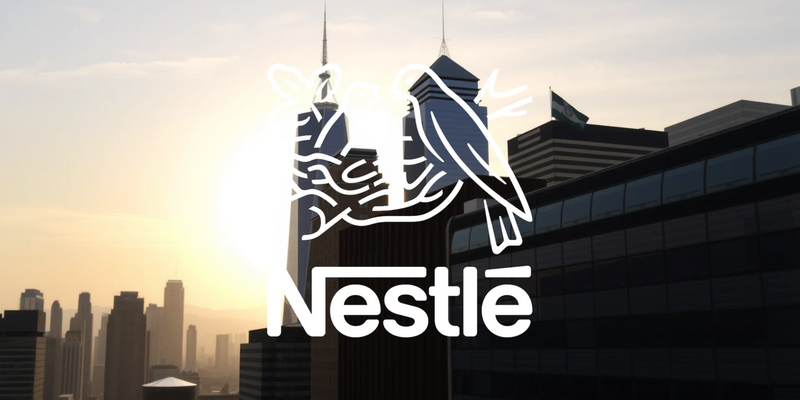Nestlé Faces Legal Challenges in Emerging Markets
26.11.2025 - 16:02:04As trading activity winds down for the year, Swiss food conglomerate Nestlé is confronting significant legal pressures in key growth regions. A Bangladeshi court has taken the extraordinary step of issuing arrest warrants for executives from the company's local subsidiary, highlighting the complex risks multinational corporations face in developing economies. Simultaneously, the company is addressing renewed allegations in Nigeria concerning sugar content in infant formula, creating a dual challenge for the food and beverage giant.
Parallel to the Asian developments, Nestlé's Nigerian division has been compelled to issue public statements refuting claims of employing different nutritional standards. Recent media reports suggested the company markets infant formula products with higher sugar content in African markets compared to European equivalents – allegations the firm strongly denies.
Company representatives emphasized that all products comply with both local regulations and international standards. This controversy revisits familiar territory for Nestlé, which has previously navigated similar discussions regarding its emerging market product formulations. The situation underscores the ongoing sensitivity surrounding infant nutrition products in developing economies.
Bangladesh Legal Situation Intensifies
The legal proceedings in Bangladesh represent a significant escalation in regulatory challenges. Local managers of Nestlé Bangladesh now face arrest warrants connected to investigations into allegedly substandard product batches. The scrutiny specifically involves the popular KitKat chocolate bar and various milk powder products.
While these issues originate from local operations, the criminal proceedings against management personnel mark a serious development with potential global implications:
Should investors sell immediately? Or is it worth buying Nestle?
- Brand reputation damage extending beyond national borders
- Precedent-setting actions that may influence other emerging markets
- Operational disruptions in a strategically important growth region
- Potential financial impact from possible product recalls
Market Response Shows Cautious Resilience
Despite the negative developments, Nestlé's primary shares have demonstrated notable stability. Trading at approximately €85, the stock shows only marginal declines and remains positioned slightly above its 50-day moving average. This suggests investors are initially viewing these challenges as contained, regional issues.
The market reaction differs for Nestlé's Indian subsidiary, where shares declined approximately 0.5% to trade near 1,264 Indian rupees. Financial analysts note this movement indicates a "technical momentum shift" that has dampened short-term sentiment in Asian markets.
The timing of these challenges is particularly unfortunate, coming just one week after Nestlé secured a legal victory regarding its Perrier water brand in the premium segment. The emerging market issues now threaten to offset that positive momentum.
Emerging Markets Present Complex Balancing Act
These recent events illuminate the fundamental tension in Nestlé's growth strategy: while emerging markets represent indispensable expansion opportunities, they simultaneously present substantial regulatory and legal uncertainties. The aggressive stance taken by Bangladeshi authorities signals a growing confidence among local regulators when confronting multinational corporations.
For shareholders, the critical question remains whether these incidents represent isolated operational challenges or indicate broader quality assurance concerns. The answer will likely determine the stock's future trajectory. Currently, market sentiment appears to lean toward the former interpretation, though coming weeks will prove decisive in assessing Nestlé's ability to manage these complex international situations.
Ad
Nestle Stock: Buy or Sell?! New Nestle Analysis from November 26 delivers the answer:
The latest Nestle figures speak for themselves: Urgent action needed for Nestle investors. Is it worth buying or should you sell? Find out what to do now in the current free analysis from November 26.
Nestle: Buy or sell? Read more here...


